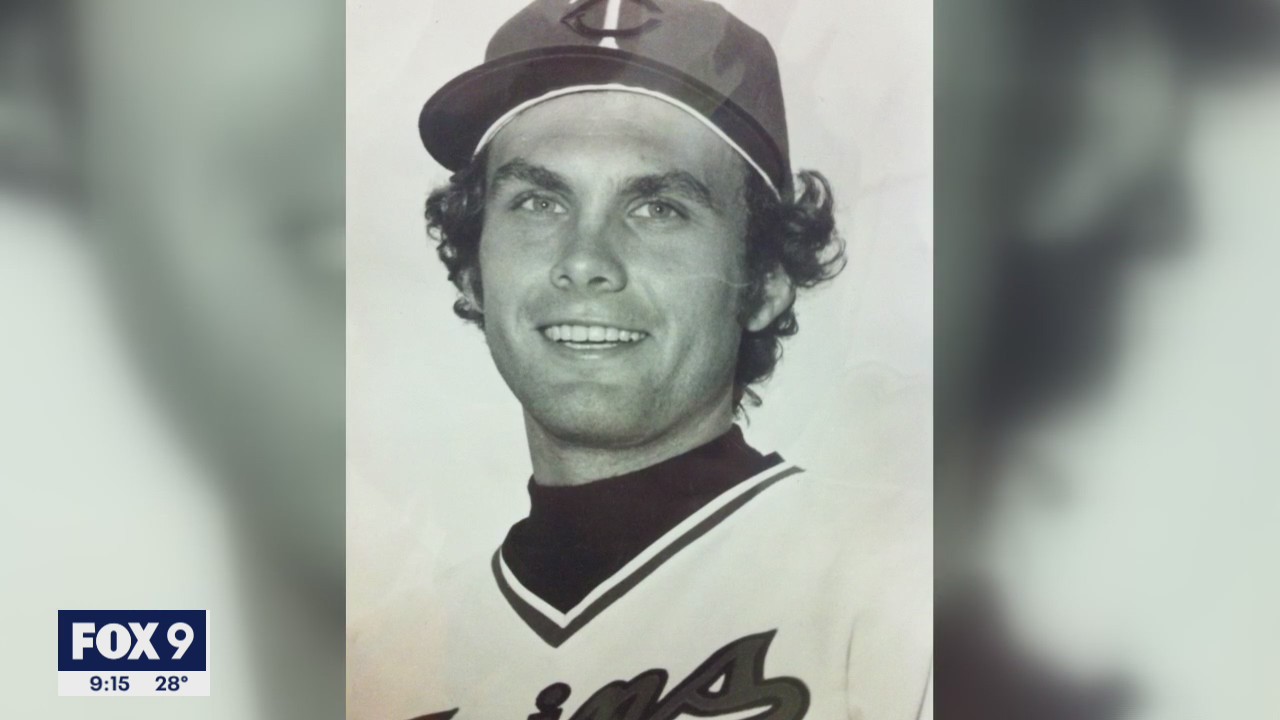Reduced pension prevents former Twins pitcher from expanding sports mission

Former Minnesota Twins pitcher misses pension
Former Minnesota Twins pitcher Tom Johnson is one of only about 500 MLB pitchers who played the game, but aren’t part of a pension plan due to his career ending too soon. FOX 9’s Corin Hoggard has the story about how he turned his passion for the game into another calling.
(FOX 9) - A former Minnesota Twins pitcher and Twin Cities native is one of about 500 former players who put in the time, but are cut out of a lucrative pension plan.
Tom Johnson’s career ended just a little too soon, but he turned his love for the game into an overseas mission.
Johnson is a pastor in Maple Grove now with an active sports mission in Slovakia, which could be a lot better funded if he got the same pension as players who have the same amount of major league experience as he did.
The Twins called Tom Johnson’s number 71 times in 1977, relying on him to finish games even if he came in as early as the second inning. His contributions earned him a couple of Most Valuable Player votes ranking him just below Nolan Ryan. By the end of the year, he noticed soreness in his shoulder.
But it was the 70s. Most players earned salaries below the national average and Johnson says the team didn’t give him much of a chance to recover.
"We were expendable," Johnson said. "Sore shoulder, they sent me to pitch in a league out on California to develop a screwball, a change up I threw all winter, and I came to spring training with a sore shoulder."
Johnson’s career was never the same. He played one more year in 1978, had shoulder surgery, and fought his way back to the minor leagues in 1980, but never made it back to the bigs.
He’s still a popular face at Twins Fest, signing autographs next to Bert Blyleven this January.
But because his career ended before 1980, he got cut out of the MLB pension plan in negotiations that ultimately avoided a strike for only one year. More than three decades later, in 2011, the league and the players’ union agreed to give players like Johnson partial pensions. The league highlighted these payments when FOX9 asked about Johnson’s situation.
"We are pleased to join the MLBPA in continuing to support these retired players," the league’s statement said.
Johnson says he’s grateful for what he gets.
But under the current arrangement, that’s less than one-tenth of the pension he would receive if he played after 1980, he missed out on MLB health insurance, and his wife won’t get anything if he passes away.
"I think more of us are thinking about our spouses and leaving something with our family," Johnson said.
He may not have much to leave to his family, but the early end of his baseball career set him on the path to a calling where he’s leading a lot of kids into better futures.
"I look at it from a bigger picture and I feel like God had some other plans for my life and moved on," Johnson said.
Almost five decades later, he’s a pastor at Church of the Open Door in Maple Grove and he’s turned his love for the game into a mission in the former Soviet Bloc.
"A lot of the vision for this came out of my background growing up in Como Park in St. Paul," he said. "You know, you’d go down to the community center, you’d sign up to play a sport and it didn’t cost you anything. You just sign up."
Johnson and his wife, Debbie, moved to Slovakia for more than 12 years, building GoodSports from the ground up.
He describes it as a faith-based Boys & Girls Club, but without any proselytizing.
They provide tutoring, help with homework, fitness training, floor hockey, indoor soccer, and of course, baseball. They do weekend tournaments and camps, and all of it is free for kids, which he says is very unusual in the two cities they serve.
Johnson says people wondered if it would work in a place where he couldn’t speak the language fluently, but he says Jesus’ message translates anywhere.
"What’s not to love about somebody who fights for the underdog and gives women a voice and challenges the religious and political systems that are corrupt and hypocritical, who’s willing to give his life for his cause?" he said. "What’s not to love about that?"
They work out of schools now and usually get to use facilities for free, so expenses for two clubs aren’t much more than $75,000 a year.
And he can’t help but think about what he could do if his Major League Baseball pension wasn’t less than one-tenth what’s given to more recent players with the same experience.
"If you had a full Major League Baseball pension, how much more could you do with GoodSports?" a reporter asked.
"Oh, it’d be a lot," Johnson said. "It’d be a lot more."
Twins Hall of Famer Tony Oliva is among the voices calling for pre-1980 players like Johnson to get full pensions.
But he’s not counting on it.
He’s raising money on his own and with help from the Twins, who plan to help him host a fundraiser this year.

